
SPOKEN WORD AND BEING HEARD
In a world of seven billion-plus souls, one of our deepest human needs often goes unfulfilled – the need to be heard. That may be one reason why the Spoken Word movement, once a subculture on the fringes of the mainstream, is gaining widespread acceptance around the world.
THE RISE OF SPOKEN WORD
“Spoken word poetry” was born in Chicago in 1984, when a construction worker, Marc Smith, started reading poetry at a popular club and encouraged others to join him in sharing their work. Smith was looking to “democratize” poetry and “bring it to the masses.”
He was following an old road with an ancient lineage that meanders through the underground and fringes of Society among the dispossessed and disenfranchised and the ones who choose to stand different.
The trailhead for this road began before there was writing and paper. The college theses expounding about the “long-held traditions” of the ancient art of wordsmithing (and all the other hoo-hah that made playing with words seem like it is a probable cause for dyspepsia) were not even a glimmer on any horizon.
Smith was going back to that most ancient of traditions, Word-of-Mouth — just like the tribal storytellers and assorted con artists and bull-shitters sitting around campfires and hearth-fires of the world from ancient times, weaving a yarn for their friends and companions. And he was inviting everybody else to join him.
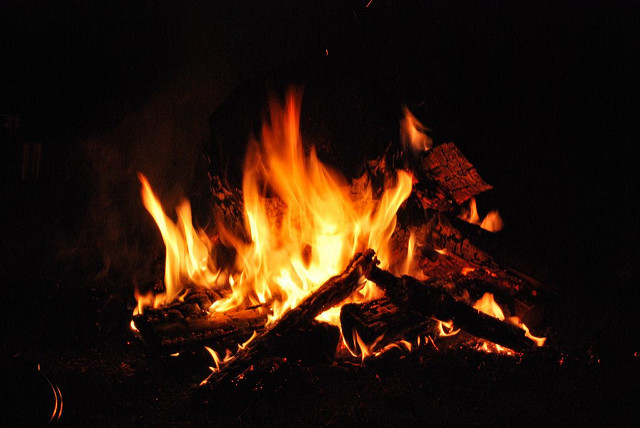
Two years after he first got up to tell his poems out loud, Smith approached the owner of a jazz club. Those readings happened every week and evolved into a competition.
The format gained popularity, but it was the Internet that blew it up big. A lot of people liked being reminded that poetry is an oral art.
Poetry was originally produced by a human voice, propelled out of a human body with the breath. It was one person talking to a bunch of other people.
Audiences liked the presentations by the most avid performers that showed that poetry, at its most effective, contains the rhythm and movements of a human heart.
They liked that the beginning and end of a poetic line is often a unit of phrasing and sense-making that is based on the human breath. You need to breathe when you’re speaking your poem. It is your breath and your voice that animates it.
PAGE POETRY VS STAGE POETRY
Poetry Its-Own-Self has always been a means of often-powerful self-expression. It grew out of song and prayer and storytelling traditions that continue to this day. It has been with us forever and because of that it can be difficult to pin down and define.
One cute breakdown, “What Is Poetry? #Poetry Defined” was published in 2015 by Advocate of Wordz. Here’s the YouTube video:
In my own experience, poetry has been a life-saver. It continues to be a way for me to find my own clarity in the confusion of everyday life. Rearranging words on a page helps me to rearrange the thoughts in my head. It works very well for that.
But, let’s face it. Over the centuries, page poetry has become stigmatized by many folks as indulgences of the rich-and-snooty. Books of poetry tended to gather dust on bookshelves.
Page poetry (especially as was taught in schools when I was growing up) could be a yawn-inducing experience. Poetry – at least the kind pedagogues seemed to favor — had the most gawd-awful and esoteric rules formulated by various poetry-makers in times past, all gathered together by the intelligentsia and assorted acolytes of High Culture.
If your teacher was into it, as mine often were, it was a grand thing; otherwise, not so much. Teachers who got stuck on guiding their charges through parsing and analyzing some “Great Poem” or other, killed more poets a-borning than any other thing, probably. Like calculus and philosophical debate, it was stuff for the Big-Brains (or folks who wanted to look like they had some.)
Page poetry was a good thing to inflict on children. Like regular doses of cod-liver oil or whatever, it was supposed to keep them growing and make them strong. By the time the children hit adulthood, it was often not a thing remembered fondly.
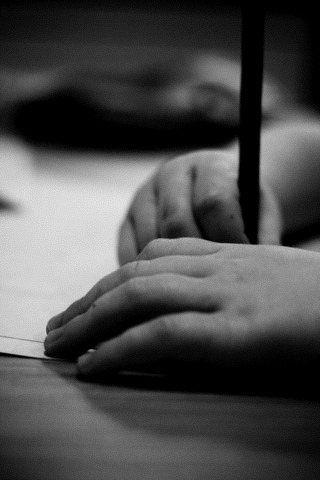
Committing poetry to a page (if you were not an academic sort), was a weird sort of hobby at best. Solitary you could string the words from your heart across assorted pages and realize all kinds of gains. Rigorous mental exercise, mastery of an art form, personal catharsis, and insights are possibilities that come to mind.
A common fate for these homemade page poems was to be stuck in a drawer where they moldered until the poet’s death, after which, they were probably tossed by the poet’s heirs.
If you were particularly proud of the page poems you constructed, you submitted them to magazines in exchange for magazine issues, sold them to greeting card makers for pennies, or spent money on producing self-published chapbooks to give to all of your family and friends.
If you got good at producing poems, you might even consider spending time creating them “on demand” as a busker.
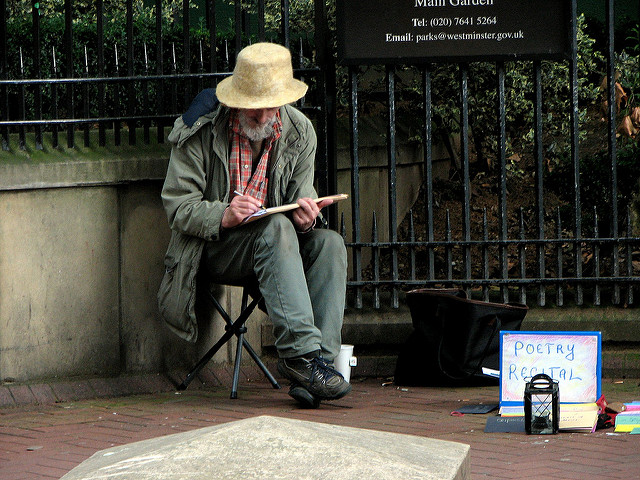
The problem with even the best page poetry is that it is only one-half of a dialogue. The maker makes, but doesn’t know whether anybody is out there listening, doesn’t feel like he or she is being heard. It gets to feel like you’re talking to yourself.
Stage poetry (as spoken word has been called) is something else. When it’s done well and the audience is lively, it flies. Performers and audiences can get caught up in a group hug-fest.
- Some poets are raucous; they rant and rave, yell and shout. Others are calm and relaxed.
- There are poets who make you laugh and poets who make you cry. Many of them bare their deepest secrets and rock your heart.
- Some weave intricate verbal patterns that enthrall you in a web of sound.
- Others parse out a problem using simple words that drill down into the core of it, reframing and rearranging your mind.
Stage poetry can be inspiring. A spoken word poem can be stimulating and entertaining when it’s good.
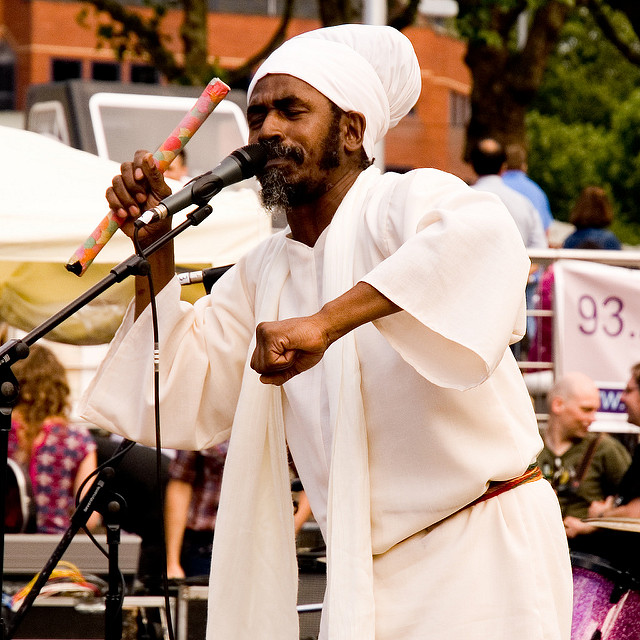
More importantly, even when the poetry or the performance is not so good, stage poetry is about connection. The poet speaks. The audience listens. Good performers take their listeners flying; bad performers get a lot of points for trying.
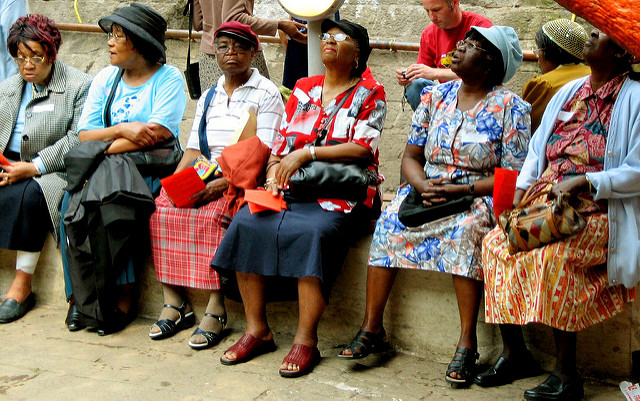
A TASTE OF SPOKEN WORD
To give you a taste, here’s one of my favorite slam poems, “Legacy,” presented in this YouTube Video published by Button Poetry. It features poet Tui Scanlon performing for Hawaii during the prelims at the 2014 National Poetry Slam.
Button Poetry was founded in 2011 by poets Sam Cook and Sierra DeMulder. Since then it’s become the largest digital distributor of spoken word in the world. The Button Poetry videos are shared on websites like Huffington Post, Buzzfeed and NPR. Their YouTube channel has over 900,000 subscribers. Click here to check them out:
SPOKEN WORD INTERNATIONAL
These days, commentators note that spoken word has “gone mainstream.” Poetry meant to be performed – performance poetry – is winning accolades from audiences of regular people. Some of those people get up on stage and do their own spoken word pieces before sometimes massive crowds.
All over the world, wherever people gather, there are open mic nights, where folks get up in front of a crowd and share their words – angry poetry, love poems, poems of protest and politics, stand-up poetry, punk poetry, jazz poetry, nonsense rhymes, and rap and hip-hop fusion poetry.
There are regular organized gatherings of amateur and casual poets.
There are poetry slams where the competition and audience participation can get intense.
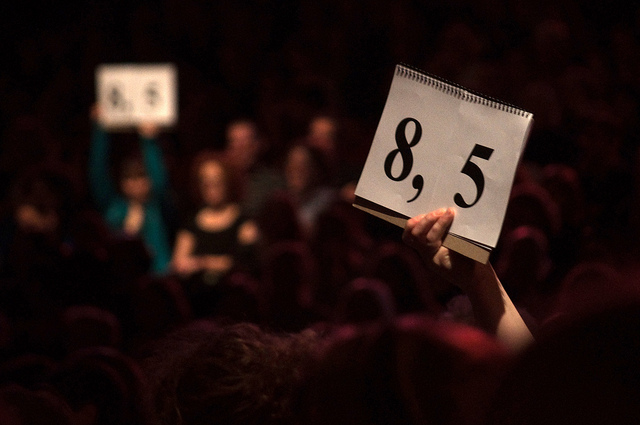
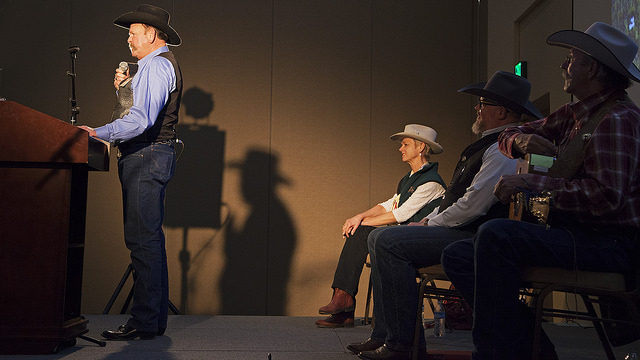
There are even spoken word workshops you can attend to become a better performing poet.
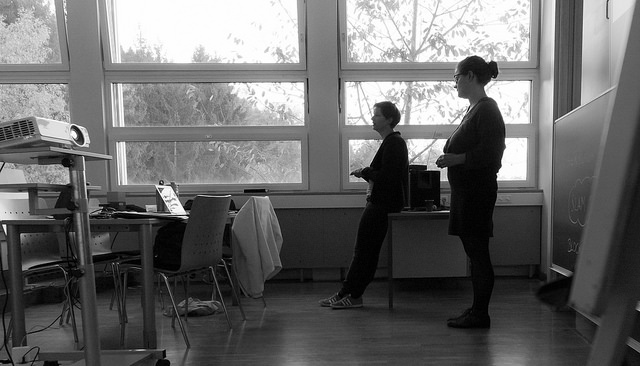
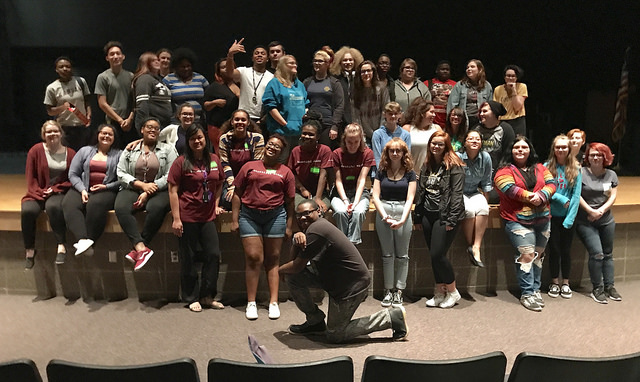
The quality of the works vary, of course, and that seems to be a part of the whole scene.
THE BEST POEM
My benchmark “best poem” has no words. It was an exchange between my friend Wide Garcia, who chairs the meeting of the Maui Live Poets that meets in the Makawao Library on the third Wednesday night of each month, and a young man with Aspergers Syndrome.
During one of our regular meetings, we were doing a round-robin, where all of the poets in attendance took a turn to present a poem to the crowd. A young man came in midway through the first session and sat down in an empty chair. He sat quietly and watched as the poets read or spoke their work, watched as the audience responded.
It’s Wide’s practice to ask everyone who comes to the gatherings if they would like to present a poem. After the first round was done and the poets were mingling and talking story, he approached the young man, who was sitting there, seemingly detached from the hubbub around him, and asked whether the boy had work he would like to share.
The young man did not answer, so Wide asked again, looking deeply into the teenager’s eyes.
There was a pause. Then the boy lifted his right hand with all of his fingertips held together like a spear-point and touched the middle of his chest, fingers pointed right at his heart. He gestured, moving his arm outward towards Wide and opened his hand, palm-up, as if he were offering his heart.
Wide made the same gesture back to the boy and grinned at him. The boy just looked back at him out of his own world.
And, for me, that became my benchmark “good poem” – the one I remember every time I start constructing another one. A good poem offers up your heart to another person. It’s even better when that other person offers up his or her heart back.
Here’s a poem….
ALWAYS THERE ARE POEMS
Always there are poems.
Not all of them use words.
Sometimes your body builds them.
Sometimes hearts must be heard.
The hand that reaches out,
The smile that glows and shines,
The eyes that sparkle in delight,
The hug that says, “We’re fine.”
Always there are poems.
All you need to do is see
The wonders of the universe
And the worlds in you and me.
by Netta Kanoho
Header picture credit: “Ballsaal um 20:50” (Poetry Slam) by Sebastian Courvoisier via Flickr [CC BY-NC 2.0]
……
SOME OTHER POSTS TO EXPLORE:
(Click on each of the post titles below and see where it takes you…)
……
Thanks for your visit. I’d appreciate it if you would drop a note or comment below and tell me your thoughts.
20 thoughts on “SPOKEN WORD AND BEING HEARD”
Hi, I am a writer, speaker, English teacher, and mentor with some experience in writing poetry. Before your post, I doubt I would even recognize spoken poetry for what it is.
Personally, I prefer the dead white poets of the past, like
Shakespeare and Frost, even Whitman. But I agree that is not to everyone’s taste.
I have recently been working with a junior high student, teaching her to write poetry and song lyrics. Maybe this summer, I can show her some spoken word poetry. She likes speaking in front of others.
I wonder if written poetry appeals more to introverts like me and spoken poetry appeals more to extroverts.
Hey Peter: Thanks for the visit and for sharing your thoughts! I am so pleased that you are moved by my post to explore spoken word. Young people are especially drawn to it so it might spark interest in your students as well.
My own personal favorite poet is e. e. cummings. T. S. Eliot ain’t too shabby either. And Mary Oliver owns my heart.
I don’t think the people who are drawn to spoken word are necessarily more extrovert-ish. I have seen first-time performers shaking so badly that you want to run up and hug them still.
Often, they do make it through the shakes and then they get into saying what they have to say. Afterwards, they are so very pleased with themselves. Many come back again and again. They mostly stop shaking.
I think the dynamic is not about being inner- or outer-directed. It is more about having something to say and wanting very much to have other people hear and acknowledge their thoughts. It is a powerful thing, that.
Please do come again….
Hey Netta,
Thank you for sharing!
The poem at the end of your post is beautiful.
When I was young, I learned a lot of poems, and I should also perform in front of an audience. It is the most beautiful thing I remember from my childhood.
I enjoyed your article, and I agree with you. We can see poetry in all those things that touch our hearts.
Hey Marta:
Thanks for the visit and for sharing your thoughts. I, too, have fond memories of performing poetry before my peers, and my teachers were so pleased with our efforts — even when we didn’t quite get it right.
Please do come again….
Yay! Poetry! I love poetry and spoken words.
I think I owe Marc Smith a lot of thanks for democratising poetry and bringing it to the masses.
You sure are right about poetry being a yawn-inducing experience in high school. In fact poetry was one of my worst subjects. I hated it so much that I decided to study it more to see if it deserves some love from me and that was how I fell head over heels and never turning back in love with it.
This a short poem of mine:
Poetry is lovely
Like a day that’s sunny.
I won’t trade her for money,
Cause I love her like my mommy.
Thanks for the visit, Peace. Your poem makes me smile. Thank you!
Please do come again….
In our world today, there are different ways in which we can air our views.
Spoken words , poems and the like, are ways to helps someone make a particular see reasons with you.
Also, over the years Poems has grown to become a tool in which we can use in making a difference.
Personally, I love to listen to motivational spoken words, also spoken words that criticizes the ills in our world or wrong doings of the government.
Thanks for the visit and for sharing your thoughts, Mikay2019. I especially like your phrase, “make a particular see reasons with you.” The phrase reminds me of Rimpoche Chogyam Trungpa’s habit of inventing new English words and phrases to describe concepts that didn’t translate well from Tibetan to English. Cool!
Please do come again….
I have always known poetry as the arrangement of a message about anything to form a rhyme; but this post has opened my mind open to a deep understanding of the word. Rhythm is the key word and presentation matters.
I grown to prefer stage poetry over page poetry because to me, I am enjoying the poem perfectly with a deeper connection. Poet Tui Scanlon’s performance for Hawaii during the prelims at the 2014 National Poetry Slam is a clear example of this. It even becomes better when it is stage performance with several poets.
I generally appreciate poetry for it ability to make one a better public speaker, connecting with other and using good vocabulary to make concise statements. I appreciate your drive to promote it.
Edgar, thanks for your visit and for sharing your thoughts. You are right. Rhythm and presentation do matter.
Please do come again….
Very well put together website with a lot of interesting content. It kept me wanting more so I went all over and I was fascinated by your content and loved the visuals you have. I am in awe. Really nice job. The dancing parts were eye catching to me. I really liked your drop down menus and the subject matter.
Chris, thanks for the visit and for sharing your thoughts. I’m glad you enjoyed exploring the site.
Please do come again….
Being heard is one thing that every humans and even animals need to leave and fulfill life’s requirements. It’s a right that we all possess naturally but the kind of world we are in is one where some are relatively denied the opportunity.
It’s now a major concern to create an atmosphere where people can be free to speak their piece without being bullied and deprived.
This is an amazing article. Thanks for sharing it.
KingAndrea, thanks for your visit and for sharing your thoughts. I do agree…us humans like being heard. I am glad you enjoyed the post.
Please do come again.
Marc Smith really is a pioneer when it comes to spoken word poetry. I hadn’t heard much about him before reading this so it’s pretty interesting to see that a construction worker broke through the typical stereotype about construction workers. Pretty powerful stuff.
Page poetry on the other hand can be dull at times for people.
I guess a good way to look at it is like reading Shakespeare vs. seeing a Shakespearean play. I saw A Midsummer Night’s Dream performed well in an outdoor theater near the woods and it honestly made more profound impression than had I read it. Great story and great point about open hearts.
This is the essence of poetry, be it on paper or through words.
Thanks for your visit and for sharing your thoughts, Pentrental. I do agree that often spoken word poems make a deep connection between poet and audience.
And you’re right — it’s the connection that is the essence of poetry.
Please do come again.
Hello there! this is an amazing review you have got here. The teaching of Spoken Word Poetry is important because it addresses students’ critical thinking, democratic engagement, and empowers their voices through verse.
Spoken Word Poetry allows students to weave their primary discourse into their secondary discourse. Thanks for the review!
Thanks for the visit and for sharing your thoughts, Joy. Yours is an interesting take on Spoken Word. I do agree that weaving together thoughts is one of the greatest bennies of playing with poetry. It surely does expand your mind.
Please do come again.
This article is a display of art and creativity. It took me back to my childhood memories when we use to recite so many poems during our children’s night moon dance. My favorite back then was “Twinkle Twinkle little star”.
I love poems that have matching rhymes and can be sung. I would be coming back for more poems. Thanks for sharing.
Bethel, I love your story about your children’s night moon dance. It sounds lovely!
Thanks for your visit and for sharing the story.
Please do come again.